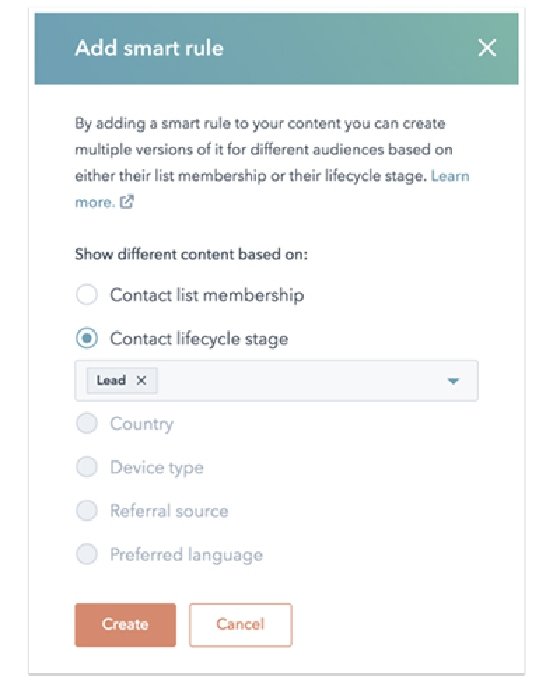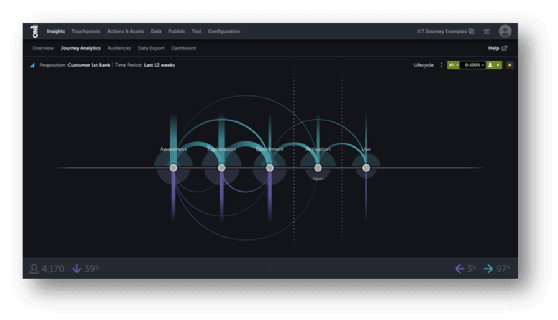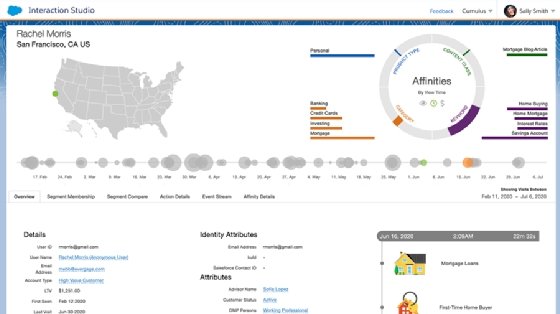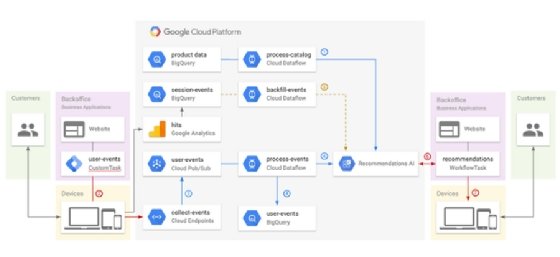
alphaspirit - stock.adobe.com
6 personalization software options to know in 2021
Personalization software enables marketing teams to customize experiences for customers. There are many options to choose from with varying capabilities.
Delivering a customized experience for prospects and customers is high on organizations' roadmaps. The right personalization software is key to accomplishing that goal.
Companies are constantly searching for ways to stand out from the competition. As technology -- including artificial intelligence (AI) and machine learning (ML) -- advances, businesses gain more data and more opportunities to use that data to improve customer experiences. When a company tailors experiences to the needs and purchase behaviors of its customers, those people feel as though the brand values and hears them.
What is personalization software?
Personalization software customizes content or experiences based on certain characteristics or behaviors. Characteristics are data points that a company collects within a database, which marketers can use to personalize content. Characteristics can include the following:
- job title
- company
- location
- first or last name
Behavior-based personalization can include the following:
- the pages a user visits on a website;
- an ad that they interacted with; and
- a referral source that brought them to the website.
Including personalization software in a marketing technology stack enables marketing teams to service the unique interactions that each user requires. A customer won't look elsewhere if they feel as though the company understands their needs.
Personalization software options
Website content personalization, geotargeting and behavior-based advertising are some ways that marketing teams can create a personalized experience, both offline and online, for their prospects. Personalization software also offers various ways to customize the experience, including rules-based personalization and using AI and ML for predictive personalization. The goal is to put the most relevant content in front of the right user at the right time.
Here are some of the top personalization software options to consider, in no particular order:
1. HubSpot
As far as marketing automation platforms go, HubSpot is consistently recognized in Gartner and G2 reports. HubSpot makes it easy to use personalization tokens for emails and landing pages by pulling in data already known within the database. The platform also enables more advanced personalization.
The HubSpot platform can trigger behavioral pop-ups that direct users toward an important piece of content. It also can send time-optimized emails and display dynamic content based on visitor characteristics and behaviors.
HubSpot offers pop-up forms that marketers can use to create personalized lead capture mechanisms depending on the page that a user views, or a certain behavior -- such as exit intent or page scroll distance. More advanced features use the platform's smart rules to offer different website experiences and calls to action to audiences based on characteristics and behaviors, such as lifecycle stage, device type or referral source.

2. BrightInfo
BrightInfo uses existing content on a website to engage new visitors. Their personalization algorithm analyzes a visitor's behavior and serves highly relevant content at suitable points during browsing.

Each user's experience is unique, which fosters interaction between visitor and brand. The personalization algorithm uses ML and doesn't require any rules, audience segments or assumptions about what content a user might want. The self-learning algorithm can identify the best use of the site's content and use two types of widgets in real-time: overlay and in-page. The overlay widget can appear as a pop-up during a visit. The in-page widget is integrated into the site's default interface for an uninterrupted browsing experience.
3. Thunderhead One Engagement Hub
The Thunderhead One Engagement Hub enables brands to understand each customer's intent and offer personalized journeys across all online and offline touchpoints.

The personalization happens in real time, wherever a user engages with the brand. Thunderhead One Engagement Hub uses a dashboard for in-person personalized experiences, which ties into marketing automation or CRM databases to show historic engagement. Marketers can make real-time website content changes using its integrated technology.
In 2020, Thunderhead added integrated AI technologies called ThunderBay to further understand customer journey behavior. This technology analyzes customer behavior and events throughout the entire customer journey, enabling companies to provide a personalized experience at every step.
4. Salesforce Interaction Studio (formerly Evergage)
The Salesforce Interaction Studio is a real-time personalization platform that enables marketing teams to roll out personalized experience on channels such as websites, mobile apps and email. It focuses on B2B organizations.
Salesforce Interaction Studio uses ML algorithms to deliver personalized experiences based on behavior tracking, audience segmentation, analytics and other implicit and explicit data inputs. Salesforce Interaction Studio complements the Salesforce Marketing Cloud's customer data platform that builds profiles of audiences and looks for intent signals.
Salesforce acquired Evergage in 2020 and announced it would help form the Salesforce Interactions Studio, which is part of the Salesforce Marketing Cloud suite of products. With this integration, Salesforce Marketing Cloud users can gain more insight for real-time personalization opportunities.

5. Optimizely (formerly Episerver)
Optimizely, formerly Episerver, is known as a web content management platform, given it is commonly the foundation on which companies may build their website. However, this platform also enables teams to automatically create customer-centric experiences within its content management system.
The Optimizely user can build pages to customize experiences for various devices. ML is also integral in this platform to deliver a personalized experience. Additionally, Optimizely can change the website experience based on individual users. For example, the platform can fire off triggered messages based on engagement behavior. Its AI uses audience profiles to help them find content faster. In turn, the AI also subtly promotes products, services or offerings that align with the user's needs.
6. Google Recommendations AI
One of the newer releases on this list is Google Recommendations AI. Created in 2020, this platform ties into the existing Google suite of products, such as Google Search Console and Google Analytics. Recommendations AI uses ML to offer personalized recommendations for unique customer preferences.
Primarily designed to serve retail recommendations, Recommendations AI puts more emphasis on CX and what the customer wants, rather than the product itself. The tool draws on past purchase behaviors to recommend products that provide value to the customer.

A wealth of personalization software opportunities
While researching personalization software extensively, TechTarget and its contributor focused on various products, including marketing automation platforms, web content management platforms and recommendation tools that provide personalization opportunities.
Marketing automation tools, website content management platforms and other email or website pop-up options enable businesses to test and deliver improved experiences to end users. With a variety of all-in-one and standalone products, marketing departments and business owners have diverse options to meet their needs.
About the author
Griffin Lafleur is a marketing director who works with startup and enterprise technology companies, universities and financial institutions. His focus centers on digital marketing, customer lifecycles, sales enablement and marketing technology.







